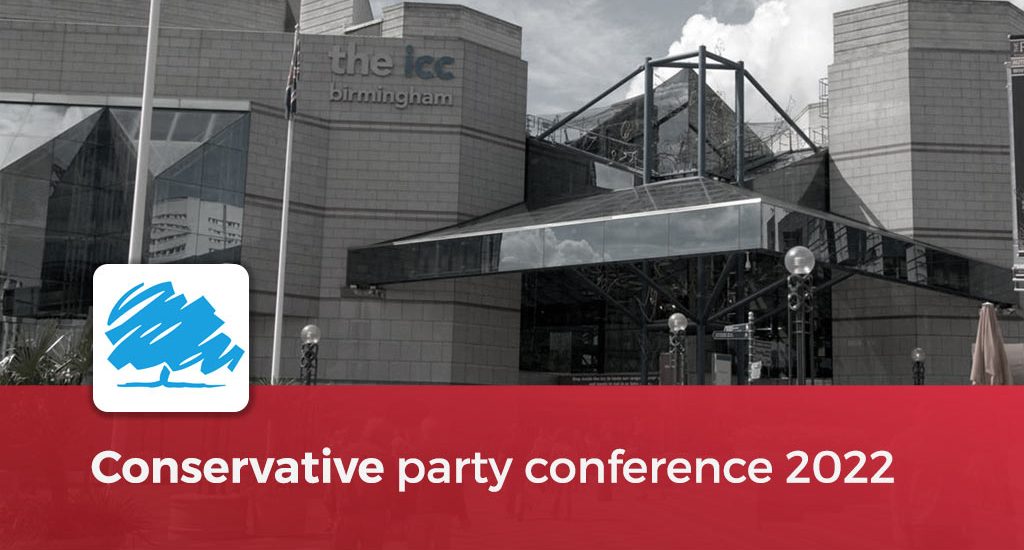- October 11, 2022
- Posted by: lutherpendragon
- Categories: insight, news

The Conservatives faced a different challenge to Labour as they entered party conference season. While Labour relished the opportunity to prove to the electorate that they were a safe pair of hands, the Conservatives hoped to get through the week unscathed.
While the Tories faced minefields in almost every policy area – public finances, health, planning, defence and national security was a relative sanctuary for the Prime Minister and Ben Wallace, the Secretary of State for Defence. But, as Senior Consultant Will Gray reported in his readout of Labour Conference, Labour has been working hard to challenge the Conservatives’ self-appointed position as the party of national security. So, what did we learn in Birmingham? Consultant Hamish Venters finds out:
On Ukraine, the Tories have the luxury of implementing a policy that is clear, principled, and commands significant support from the wider population, and even from the Opposition. Given the problems faced on the domestic agenda, it’s no wonder that defence is seen as something of a safe harbour for the Party. There were however signs of an overreliance on this, with it noticeable that when fringe events nominally about defence opened up to Q&A, the discussion often did return to the mini-budget and the economic pressures on the Government’s agenda. There were warnings from some that domestic difficulties should not be allowed to trump the Government’s approach on Ukraine.
When discussing Ukraine those attending fringe events largely took the same line as ministers, and a tough stance on Russia. Talk of ‘off-ramps’ was quickly dismissed and Liam Fox took the view that sanctions could never be removed from Putin’s Russia. Armed Forces Minister James Heappey acknowledged that many Western munition stockpiles were now depleted and that the focus would have to shift to replenishing supplies and providing the Ukrainians with new equipment. He was explicit that this was an opportunity for Western companies.
Elsewhere, the invasion loomed large over discussions on security and more often than not framed any debates on UK defence policy. There was a strong sense that Putin’s invasion had caught the UK and its NATO allies flat-footed, and a real sense of urgency to remedying this.
The refresh of the Integrated Review was highlighted as a chance to make adjustments to reflect the new international situation, without overhauling the overall strategy. The Integrated Review was generally praised as being correct in its most fundamental assumptions and for setting out the right direction of travel. Using technological advances to provide a strategic advantage is still seen to be critical, and there was a lot of enthusiasm for the potential of synthesising data between the air, ground and sea. Space was also cited as an area where capabilities could be rapidly developed.
In a similar vein, ministers were at pains to play down any suggestion that the commitment to increase defence spending to 3% of GDP would lead to a larger military than that provided for in the Integrated Review. At a fringe event Heappey suggested there were “bigger priorities” than increasing numbers, and that additional funding would be focused on science and technology.
Ben Wallace used his appearances at fringe events and on the main stage to make the same point. He said that any additional funding would not be directed at “shiny new toys”, but at improving and repairing what is already in place. He criticised a “hollowed out structure” that was the result of cuts to things that are less visible, and said more resources would be directed at the “boring” things that make the forces operate properly. Nonetheless, Wallace was keen to play up the benefits of defence procurement to the UK economy, using his speech to emphasise which bits of kit are made where and how many jobs rely on these supply chains. It will continue to be important that firms show they are providing value, and maximising their use of UK supply chains.
While the ink has dried on the updated Integrated Review, there is still significant opportunity to influence policy and procurement decision making, with ministers on the look out for ‘quick wins’ in almost every policy area, including defence and aerospace. Ben Wallace looks secure in Main Building until the next election, and is playing an increasingly pivotal role in government, so taking a long-term view to engagement is certainly in industry’s interests.
Luther Pendragon is one of the UK’s most highly-regarded independent communications consultancies, with a 30 year track record of helping organisations – including those in aerospace and defence – understand and manage political risk and tell compelling stories to the people that matter. Contact us to find out how we can help your organisation make an impact.
